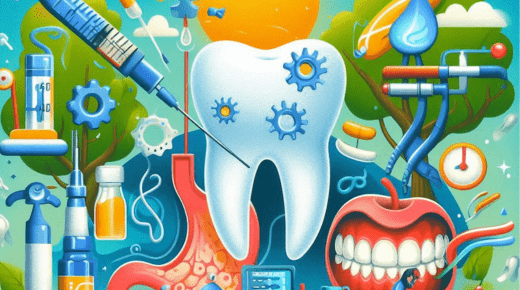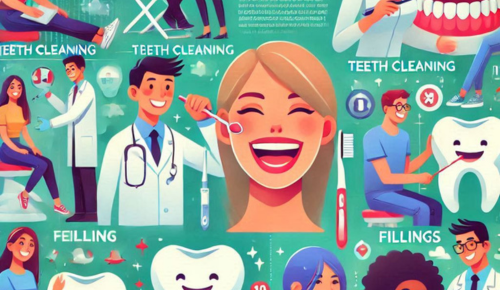Diabetes is a long-term and chronic disease that affects millions of people around the globe. Diabetes is usually well known for what it does to blood sugar levels but can also impact overall health including oral health. It points out the importance of knowing how diabetes affects oral health, so people can take care of both. This article is going to explore diabetes and your mouth, as well as offer tips from the dentist at Grand Rapids dental practice on how to keep your pearly whites clean while managing to live with diabetes.
How Diabetes Affects the Oral Health
Diabetes can affect oral health by, increasing the risk of many common dental diseases. One of the main links between diabetes and oral health is how effectively your body can fight infections or heal wounds. Elevated levels of blood sugars weaken the immune system which makes it difficult for the body to fight against any bacterial invasion and infection in an area as well as a mouth.
1. Gum Disease (Periodontitis)
People who have diseases like diabetes are at higher risk of developing gum disease because it reduces blood flow to the gums and hinders immune response. Similarly, too much sugar in saliva can allow bacteria that cause gum disease to thrive
2. Dry Mouth (Xerostomia)
Dry mouth, also known as xerostomia is a condition in which salivary glands become unable to produce enough saliva leaving the feeling of dryness within your oral cavity. Dry mouth can be a consequence of diabetes-related diminished saliva or a symptom brought on by those prescribed medications to treat the disease. We rely on saliva to get rid of acids in the mouth and leave our meals behind. Saliva neutralizes acids, cleans the teeth between brushings, and contains proteins that inhibit bacteria growth.
3. Thrush (Oral Candidiasis)
It is a fungal infection caused by yeast, Candida that develops inside the mouth. It normally presents as white or red bumps on the tongue, cheeks, or roof of your mouth. The increases in blood sugar levels (caused by diabetes) create a breeding ground for Candida. People with diabetes can be more prone to oral thrush if they wear dentures or have a dry mouth. Yeast-related infections may also cause the mouth to be painful, and they can make eating and speaking become a bit hard.
4. Delayed Healing
Mouth healing is slower in diabetics which can make full recovery from oral surgeries, extractions, or even minor injuries more challenging. Blood flow problems and weak defense reactions to infections contribute to a sluggish recovery process in the mouth. This leads to an increased chance of post-operative infection and complications after dental surgery.
5. Increased Risk of Cavities
You can prevent it by taking care of your oral health, Cavities or dental caries are holes in the teeth that develop all through a daily routine and motivate prevention by simply exercising correct routines like brushing. Which results in cavities or carious teeth. High sugar in saliva can be one of the factors for bacteria that cause decay to grow. By compounds in dry mouth, which alone cause an increase of 4%, and you have a much higher likelihood that your teeth will become cavities.
When you have diabetes, your overall oral health is compromised meaning that different dental challenges such as gum ailments, dry mouth, thrush, and cavities are worsened. For those in Grand Rapids who have diabetes but want to keep their symptoms in check, they may be able to access top-of-the-line dental care by making informed decisions. The best way to curb these complications is by controlling blood sugar levels, maintaining good oral hygiene, and seeing your dentist every six months.




